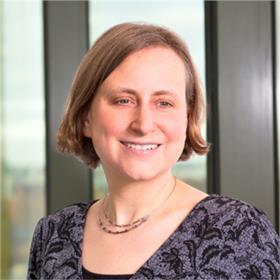Feelings matter!

The emotional component of the lawyer-client relationship, and its impact on professionals, is underestimated.

Good law firms aspire to technical excellence, responsiveness to clients, value for money and business development. When all that is done, though, there is sometimes little space or energy left over to think about the impact that technically demanding, fast-paced work and complex client relationships can have on a lawyer.
Turning a blind eye to reflective practice can lead to feelings of job dissatisfaction, isolation, burn-out and long-lasting mental health difficulties. But the good news is that making room for it, even just for an hour a month, can make a real difference to lawyers’ working lives.
At Mills & Reeve LLP our byword is 'Achieve more. Together' – and it is not just an empty slogan but a real aspiration. Our people are encouraged to pursue their interests and innovative ideas where these foster that aim and support the continuing development of the firm as a thoughtful organisation.
As part of this, we have introduced our lawyers to Balint groups.
Balint groups have been used for decades within the medical profession to reflect, understand and process the feelings within the doctor-patient relationship. However, we believe this is the first time they have been used to promote professional development within a law firm setting.
What are Balint groups within the law profession?
Balint Groups are closed, regularly scheduled groups, comprising of around 12 lawyers and facilitated by two leaders. The Balint group model allows for the exploration of a particular lawyer-client relationship brought by an individual group member. Although there may not be an individual history taken from a patient such as in the field of medicine, the structured, confidential space with clear set-out boundaries promotes curiosity. Most importantly it allows for a safe group discussion and reflection on feelings related to the lawyer-client interaction, rather than providing practical or legal solutions.
For lawyers to do the best job possible for their client, they need to metabolise the conscious and unconscious feelings emerging in the lawyer-client relationship (of which they may otherwise be unaware, and which can hinder professional development). Balint group discussion helps the lawyer better understand their emotional experience within the professional relationship. In becoming more aware of the whole picture, the lawyer may find that their feelings relating to work and professional relationships become easier to navigate and more rewarding.
Reflective practice is an essential part of the Solicitors Regulation Authority (SRA) annual statement of competence. However, it is difficult to make time for and record evidence of best practice. The Balint group model provides an innovative way of reflecting in the legal profession which can be used to meet the SRA’s requirements.
Running Balint groups at Mills & Reeve
Here at Mills & Reeve, the initiative was led by Jenny Beresford-Jones, a senior lawyer specialising in public procurement and Balint Society accredited group leader. The project was supported by the wider Mills & Reeve learning & development team.
Collaborating inter-professionally with the medical field, the work was supervised and supported by Dr Vikram Luthra, psychoanalyst, consultant psychiatrist, and accredited Balint group leader, based in Leeds, who has an extensive portfolio of facilitating and supervising these groups for doctors across the profession.
Running a Balint group in your firm is relatively low cost and sustainable, as groups can be conducted online as well as in person; bringing lawyers together from across a range of locations. Here, we have run four twelve-month cycles of groups, to date. These have been for NQ lawyers, junior litigators and lawyers who are 0-3 years qualified, across a wide range of practice areas in the firm. This year we are looking to offer groups to more senior lawyers for the first time.
Joining a group is entirely voluntary and is not linked in any way to formal appraisals or development initiatives. Those interested in participating are asked for regular attendance and commitment to the group (once a month for a year). The two group leaders run the groups carefully to the standard Balint-model structure, to ensure that the necessary confidentiality and boundaries are in place to allow the group the space to think.
Benefits of Balint
Feeling less alone: Post-group feedback showed that sharing and thinking about their emotional experience helped our young lawyers to be less judgmental of themselves, more understanding of the client and of different perspectives, especially where relationships had been challenging. Many were surprised by the commonality of their difficulties.
Better client service: The lawyer-client relationship and, ultimately, client service improved when the lawyer involved had a wider understanding of their emotional interaction with the client (via the group perspectives).
Improved lawyer wellbeing: Participation in the group allowed lawyers to feel supported and held by the firm. This is especially important at this critical early stage of their career, where lawyers must learn to tolerate being junior and be patient enough to take the time needed to really develop.
Financial Times Innovative Lawyers Awards Europe 2024: we were delighted that our Balint groups were awarded a 'standout' designation in the People and Skills category of these prestigious awards last year.
Investors in People: In June 2023, we were awarded the highest 'platinum' award offered by Investors in People; the accreditation report noted the innovative nature of our Balint groups.
Client facing: Training offered to in-house legal teams; we have hosted client away days running Balint groups for our client legal teams to demonstrate how these could help our clients manage their own lawyer-client relationships. The feedback has been excellent.
Want to know more?
If you are interested in thinking about setting up a Balint group within your organisation, please do contact either Jenny or The UK Balint Society for further information and advice.
Further reading
Jenny Beresford-Jones is a senior legal advisor at Mills & Reeve LLP. Dr Vikram Luthra is a consultant psychiatrist and psychoanalyst, and co-president of the Balint Society UK































No comments yet